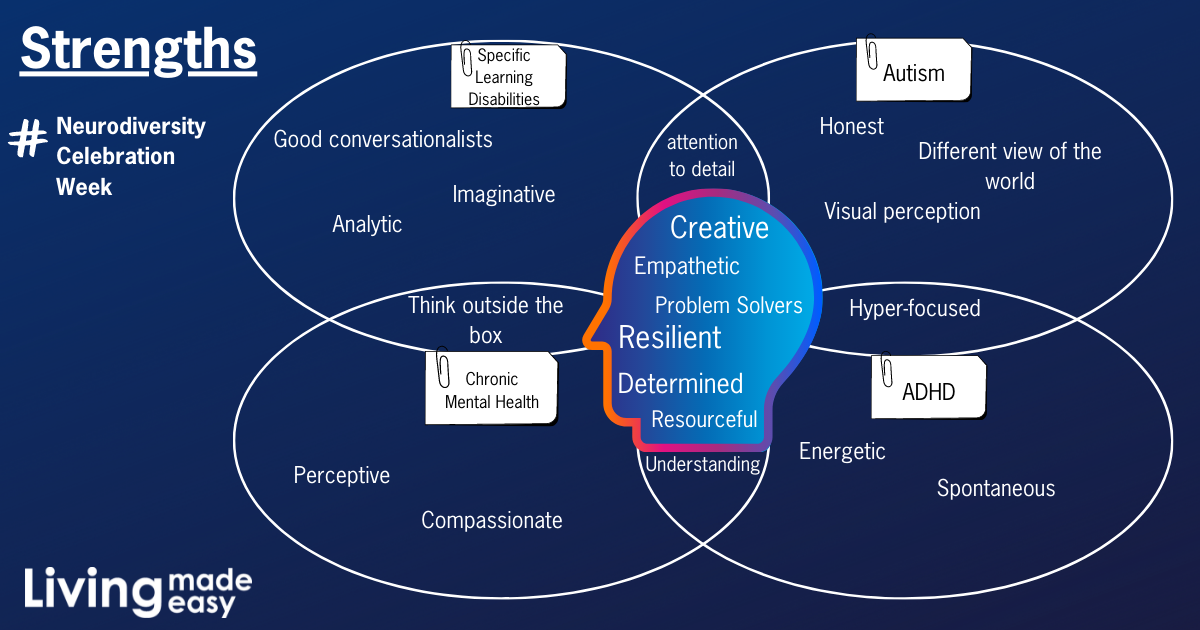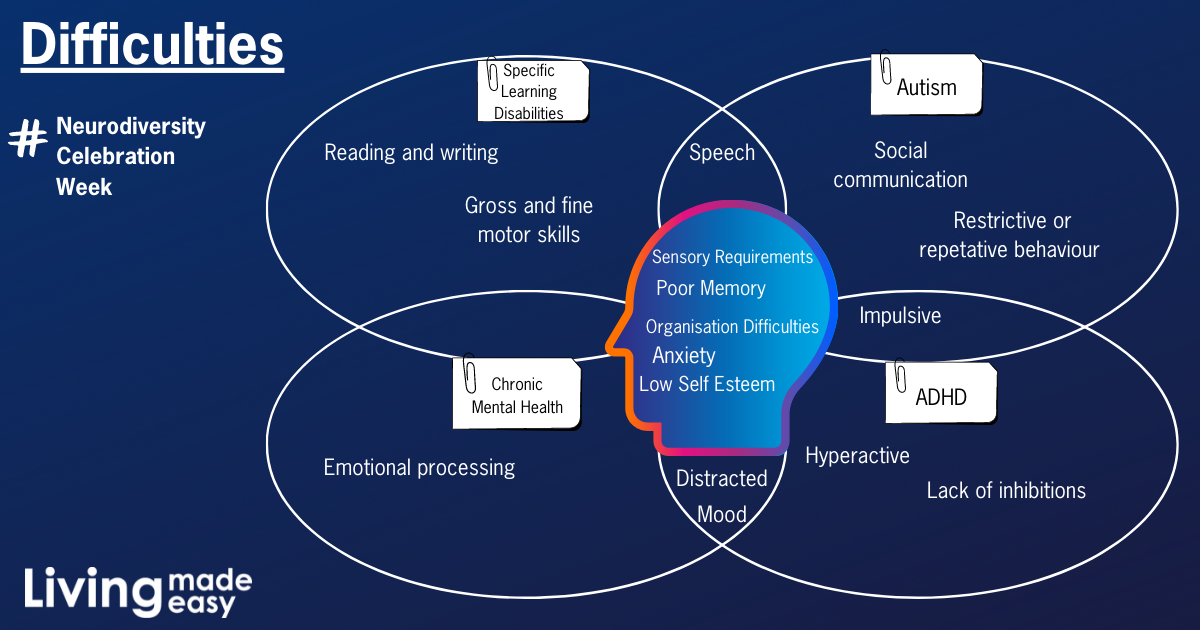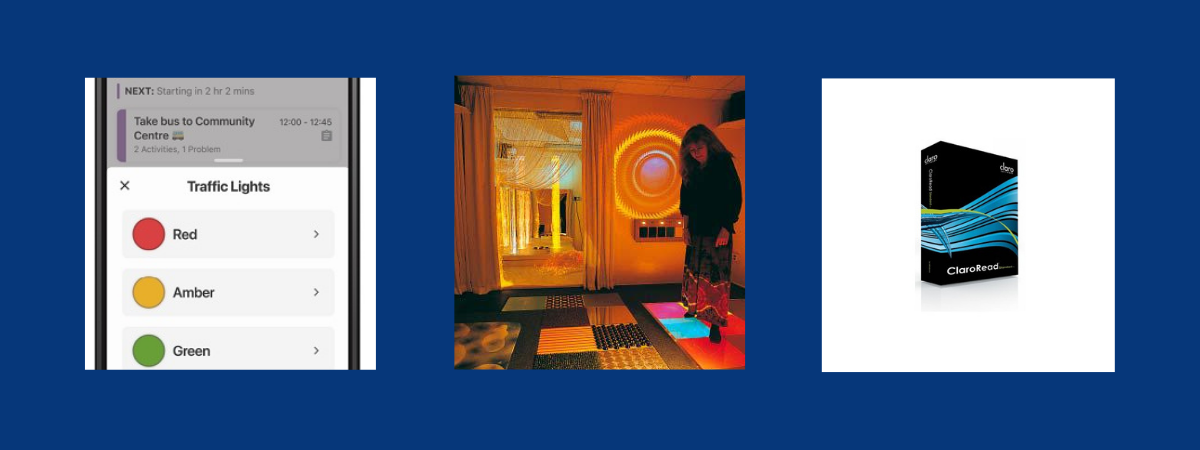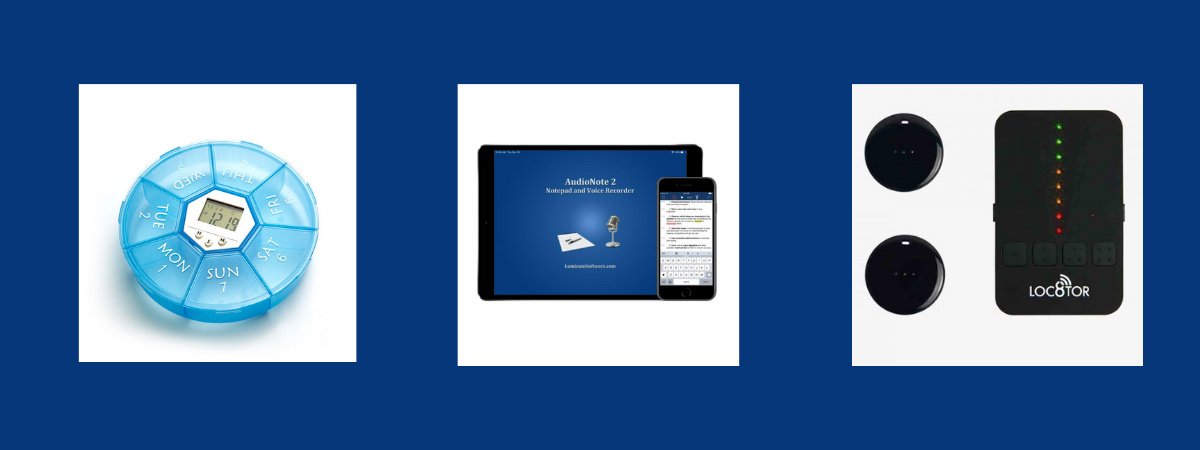Neurodiversity Celebration Week: Our Picks for Day to Day Help
This week is Neurodiversity Celebration Week, a worldwide initiative designed to challenge the stereotypes and misunderstandings that neurodiverse people face day to day.
The mission of this week is to change how neurodivergent people are viewed, and importantly to recognise the many talents and advantages that they possess, rather than focusing wholly on the difficulties that they face day to day.
What is Neurodiversity?
The term neurodiversity refers to a range of differences in brain functioning, behavioural traits, and social behaviours. The neurodiversity movement, coined by Judy Singer, a sociologist with autism in 1998, aims to show that neurodiversity is part of the natural range of human diversity, rather than as something that is a deficit to the person. In a basic sense, the term refers to those whose brains function and process information in a way that is considered to be different to the majority of the population. Conditions that come under this banner include dyslexia, dyspraxia, ADHD, autism, tourette's syndrome, or chronic mental health conditions such as ‘personality disorders’, though this is by no means an exhaustive list.
The benefits of the Neurodiversity Paradigm
The paradigm aims to prove that the differences in how people think and process information are not disabilities; it demonstrates that these people have strengths because of their differences. As with Neurodiversity Celebration Week, it aims to battle the stereotypes, misunderstandings and discrimination against those with neurodiversities. In the UK as many as 1 in 7 people are thought to have a neurodiversity. Understanding their strengths and embracing them as part of human diversity only serves to benefit society as a whole.

This is not to say that those with neurodiversities don’t sometimes struggle with certain aspects of day to day work and life. Many of these struggles come not from the condition, but from the way in which society behaves. For example, people with autism do not necessarily struggle with social interaction because of an innate inability, but rather because of the unwritten rules of social interaction which often do not match the way that they view the world and interact with it. The social model of disability extends to neurodiversity. Rather than assume that those with a neurodiversity are at a disadvantage, society and organisations must ask themselves what minor changes can we make to the artificial rules that govern how we work to accommodate a person who thinks differently, and has a lot to offer because of this.

The following are six of our picks of technology, apps, and services that can help make work and life easier for those with neurodiversities:
Our Picks to support neurodiversity

Many people who have a neurodiversity struggle with activities that people often take for advantage, such as task planning, organisation, managing anxiety or memory. Brain In Hand is an app for your phone or computer described by it’s manufacturer as a way to help people “manage life’s bumps in the road, with simple digital tools and practical human support just when they are needed.” Brain In Hand is designed to help you manage any, and all, of these difficulties. It is a self-management tool that you can personalise to your individual needs.
Sensory Room
It is well known that those with autism can struggle with sensory processing. Sensory differences and difficulties are not limited to those with autism however. Many people who are neurodiverse either seek sensory stimulation or struggle with sensory overload. Creating a safe sensory space in the form of a Sensory Room can help with avoiding sensory overload, which can trigger acute anxiety for many people, or meltdown / shutdown in those with autism. These rooms can be entirely customised to the users needs, so that their sensory preferences are taken into account as well as on a grander scale whether the room is designed to relax or stimulate. The result is an environment that is entirely in your control.
Claro
Most people are aware that those with dyslexia have difficulty with reading and writing, but many people do not know that there is more to it than that. Dyslexia is a language processing condition, meaning there are a great variety of ways in which someone with the condition is affected. The Claro software seeks to address all of these by providing coloured overlays to your computer screen, screen rulers, text to speech software and more all contained in one package.

Medication Organisers
Many people who are neurodiverse struggle with organisation and memory. This can make taking medication on time, and remembering whether or not you have taken it, difficult at times. Medication organisers and dispensers, especially those with built in timers and reminders can remove that worry over whether or not you have taken your medication.
AudioNote Synchronised Audio and Written Notes
Keeping track of your notes and remembering the context in which you wrote them is difficult for most people but for those with neurodiversities it can be doubly so, especially if you have trouble with attention span or memory. Apps like AudioNote can link voice recordings to your notes, organise them into folders, and insert an entire range of writing photos and other customisable items into your notes to help job your memory and provide context.
Item Locators
Everyone forgets where they put things from time to time and this is no different for those with a neurodiversity. Losing items can cause a lot of stress, and stress makes it harder to find the item you’re looking for. Item locators such as the Loc8tor are designed to help you find items quickly. Simply put the tag on your keys, wallet, television remote, or whatever item it is you want to be able to easily find, and when you activate the handset you can follow the sound of the beeps, and a string of coloured lights on the handset will show how close you are to it.
With Living Made Easy you can find a wide range of items designed to help you in your day to day life. Take a look through our various categories or use our AskSARA service to find the right products for you.
Thank you for reading.
We trust that you have found this spotlight on products to make day to day life with a neurodiversity easier. Please do share it if you know someone who might find this information and the products helpful. Our target is to reach 5 million individuals by 2022 so please do help us to spread the word socially. You can copy and paste the link to this article in your social channel or email it to a friend you think might find it useful.
If you would like more information on any of the products highlighted, just click on the bold text or the image captions or browse through our product categories at your leisure.
Share your thoughts with like minded people on our forum you'reable. This is our forum for disabled people, by disabled people.
You can also use AskSARA for more specific help and advice.
Call our helpline on 0300 999 0004 or email us at info@dlf.org.uk
If you can support our work now, or in the future please consider making a donation.